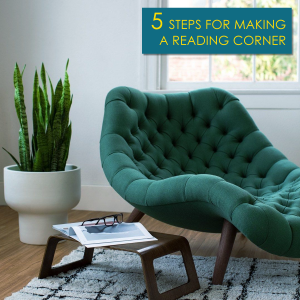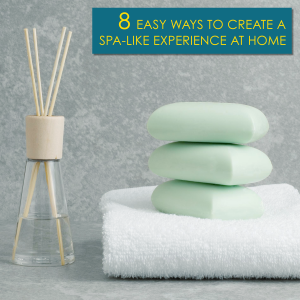What Is Real Estate Investing?
Real estate investing is using land or the buildings on it to make money. There are several ways to approach it including residential or commercial properties.
To give you a full picture of real estate investing we’re going to answer these questions:
- What are the real estate investment types?
- How can I make money in real estate?
- How do I get started?
What Are the Types of Real Estate Investments?
There are four basic types of real estate investments: Residential, Commercial, Industrial, and Land.
Residential Real Estate
Residential real estate is what most people are familiar with. It’s where you invest in a residence. Purchasing a single or multifamily home, and renting it out is the most common form of residential real estate investing.
Commercial Real Estate
Commercial Real Estate is businesses or apartments with more than four units. If you want to invest in a restaurant, for instance, that would be considered commercial real estate. It’s easier to get into residential real estate as there are more tax regulations and city codes to worry about in commercial real estate.
Industrial Real Estate
Industrial Real Estate is like commercial real estate on steroids. It’s where you invest in power plants, warehouses, or any large scale factory. If you’re a beginning investor, this probably isn’t the path to go down as the purchase price is typically extraordinarily high, and it’s a lot more complicated than either residential or commercial real estate.
Land Real Estate
Investing in land is one of the easiest ways to get into real estate investing. Land real estate is where you purchase undeveloped land and either rent it out or hold on to it and wait for it to appreciate.
How Do You Make Money in Real Estate Investing?
So now that we’re here, how does investing in real estate make you money? There are three main ways to make money in real estate.
- Collecting Rent
- Selling it for more than you bought it (also called appreciation)
- Collecting interest from loans
Collecting Rent
The most common way to earn money through real estate is by collecting rent. You own property, and someone pays you money to borrow it. Pretty standard. For this to be a good investment, you’d need to rent it out for more than your mortgage payment plus any needed repairs. A good rule is to buy a property that you can earn around 4% of the purchase price through rent yearly.
Flippers vs. Buy and Hold
Another common way people make money in real estate is by looking for deals and turning around and selling those deals for a profit. If you’re explicitly buying so that you can turn around and make a quick profit it’s called being a flipper. Flippers are looking to buy it, fix it up, and sell it as quickly as possible. It’s a pretty hands-on way to make money in real estate,
Some people aren’t interested in flipping houses and instead buy and hold. They’re banking on the housing market going up, which would allow them to sell for a profit down the road. While this is a common tactic, it’s more like speculation and less like straight real estate investing. It also usually takes a lot of time for the housing market to increase enough to be worth your time.
Collect Interest on Loans
A third way to make money through real estate investing is by earning interest on loans. In this situation, you invest your money, and a real estate developer takes care of the nuts and bolts of the operation. You typically don’t earn as high of a return doing this as you would by being more hands-on, but it’s a lot less time-consuming.
For instance, let’s say a real estate developer wants to purchase a property for $300,000. In this case, you’d loan them some or all of the $300,000 they need.
They’d pay you back a certain amount each month with interest. It’s like you’re the bank lending them money.
How to Get Started Real Estate Investing
Now we know the types of real estate investments and the most common ways people make money. It’s time to figure out which route is best for you.
Do You Want to Be an Active or Passive Investor?
The first step is figuring out how hands-on you want to be. Active investors take an active role in their investment. Passive investors let someone else worry about the details. Do you want to be involved in the day to day aspects of your investment, or do you want to supply the money and forget about it? It’s not just if you want to be active, but how active you want to be.
Active Investing Earns Higher Returns
Being an active real estate investor means you’re hands-on with your real estate investment.
You might be the one physically putting new tile in a house you’re trying to flip, or you might just be setting up the contractors to do the work. Either way, you’re taking time out of your day to make sure the job gets done.
An active real estate investor might also do the legwork of getting renters into their apartment or scheduling needed repairs.
The more hands-on you are, the higher your returns are likely to be. The more active you are, the more time it will take out of your day.
Passive Investing Involves Less Time and Stress
Being a passive real estate investor means you hire out much of the day to day work. This can be as simple as hiring a property management company to take care of getting renters and scheduling repairs for you.
As a passive real estate investor, you give up some of your potential earnings via management fees in exchange for your time and sanity.
People who are already very busy, or don’t want to worry about all the responsibilities of an active real estate investor, might like the freedom that passive real estate brings.
The first step to jumping into real estate is figuring out where on the active/passive continuum you see yourself as a real estate investor.
How Risk Tolerant Are You?
Speaking of sinking the whole ship, how risk-tolerant do you want to be? The more risk you take on, the higher your potential rewards.
Are you looking for a safe path to gain a steady rate of return or would you rather risk a larger loss in hopes of a substantial gain?
There are obvious risks with each type of real estate investment. You might buy a duplex only to find nobody wants to rent it from you. You might buy a piece of land in hopes the value goes up, but instead, it goes down.
Investors who lend money to real estate developers take the risk that the developer will lose their money or the market will turn, and nobody will buy the finished product.
When deciding to become a real estate investor, it’s critical to do your due diligence to be sure you’re limiting risk as much as possible. Each type of real estate investor takes on a different amount.
Working with a Real Estate Agent
Having a real estate agent you can trust is essential to helping you feel comfortable investing your money. Whether you want a rental property to generate cash flow, or simply want to buy and hold, a competent real estate agent can make all the difference. They can save you hundreds of hours by immediately narrowing down your search and fit the exact criteria you’re looking for. They also have the experience to know the difference between a good investment and a bad one. It’s one way to substantially lower your risk of ending up in a bad deal.
Call me for any advice you may need!




Recent Comments